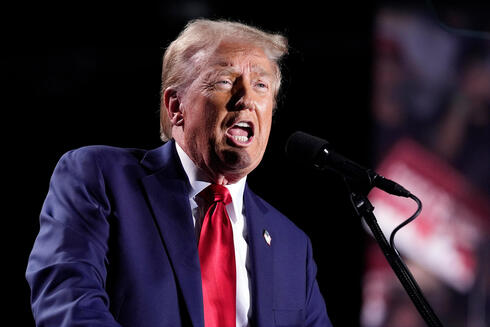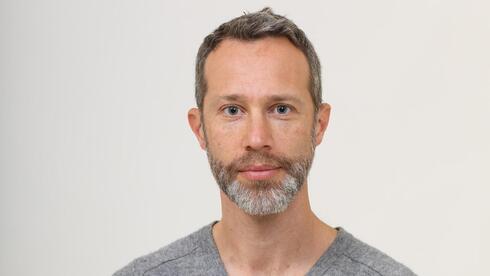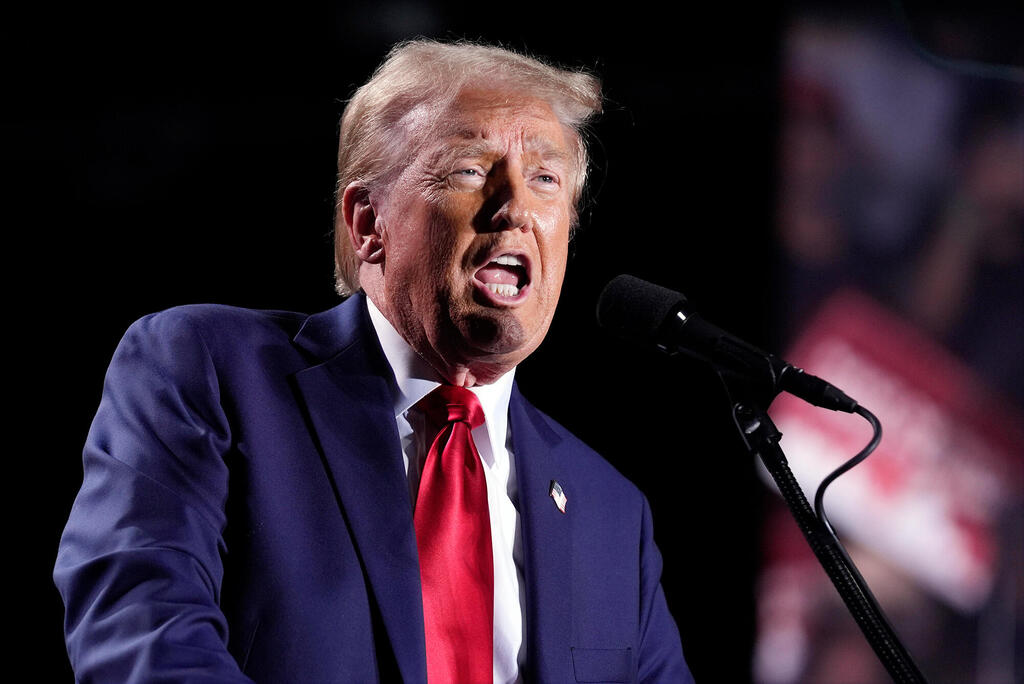
OpinionTrump’s influence on antisemitic extremism sets a dangerous path
Opinion
Trump’s influence on antisemitic extremism sets a dangerous path
The former president’s inaction and inflammatory language leave American Jews vulnerable as hate rises.
Throughout my three-decades-long counterterrorism career, I’ve shied away from politics. But the two have become more intertwined than ever. Tropes once confined to skinhead clubs and white supremacist Internet forums now litter the rhetoric of pro-Donald Trump and MAGA feeds.
Antisemites and hate influencers are thriving on X, which is headed by one of Trump’s most prominent advocates, Elon Musk. Users on The Donald, another forum frequented by antisemitic ultranationalists — and the same one that played a major role in mobilizing ahead of the Jan. 6 attack against our democracy — are now mobilizing to become poll workers.
The truth is that no one deserves more blame for this tsunami of antisemitism than Donald Trump. It is reasonable to assume that if Trump is re-elected, anti-Jewish hate in America will increase.
Kamala Harris has been portrayed in some attack ads by the Republican Jewish Coalition as condoning antisemitic rhetoric. Trump, on the other hand, said at a recent campaign event, “If I don’t win this election,” then “the Jewish people would have a lot to do with a loss.” At another event, Trump blamed Jews “voting for the enemy” for the hypothetical destruction of Israel, should he lose in November.
I am an Israeli-American Jewish woman and, like many of my Jewish friends, I’m concerned about the safety of my family, friends, and community. But while antisemitism has reached new levels since Hamas’s barbaric attack on Israel and the subsequent war in Gaza, its trajectory began with Trump.
At the counterterrorism organization that I lead, the SITE Intelligence Group, we saw how America’s extremist landscape swelled during the 2016 election cycle. Racist, antisemitic, and conspiracist online communities found new influence over political discourse, and at times credited themselves for Trump’s victory.
As such rhetoric and threats surfaced, Trump consistently refused to disavow it — and antisemites rejoiced. “Glorious Leader Donald Trump Refuses to Denounce Stormer Troll Army,” read a headline by neo-Nazi Andrew Anglin in May 2016. It was posted to his website, The Daily Stormer, named after the Nazi Party’s Der Stürmer newspaper.
Anglin afterward told The Huffington Post that he interpreted Trump’s silence, “as an endorsement.”
Trump gave these communities unequivocal support when, in Feb. 2017, just two weeks into his presidency, he signed an order changing the US’ “Countering Violent Extremism” program to focus solely on Islamist extremism, removing white supremacists from its scope. It was essentially a green light for the far right, and white supremacists celebrated the act.
“Every move he made was ****ing AWESOME,” wrote a member of the Stormfront white nationalist forum.
Dangerous hate rhetoric quickly turned into action. On August 11, 2017, far-right antisemites converged at a rally in Charlottesville, chanting, “Jews will not replace us.” Oft-forgotten details of that day included men dressed in fatigues and carrying semi-automatic rifles standing across the street from a local synagogue, Congregation Beth Israel, during their Shabbat prayers.
Here was an easy opportunity for Trump to assert moral clarity. Instead, he famously said there were “very fine people on both sides.”
Though Trump and his supporters continue to deny the intent of that statement, the fact is “fine people” were now more emboldened than ever.
On Oct. 27, 2018, a neo-Nazi murdered 11 Jewish worshippers and wounded six more during Shabbat services at the Tree of Life synagogue in Pittsburgh. Trump did pay lip service by calling the attack “pure evil,” but instead of changing policies on either domestic terrorism or guns — anything of substance — he said, “If there was an armed guard inside the temple, they would have been able to stop him.”
As someone who moved to America to escape the constant looming threats of war and terrorism, I never thought a president would so openly leave Jews to fend for themselves in such a way.
In the aftermath of the Christchurch mosque shooting in New Zealand, in which 51 people were killed, leaders from around the globe signed the “Christchurch Call,” a non-binding agreement to combat extremism and online radicalization. Major governments and tech companies signed on. Trump, however, refused.
This violent extremism continued to spread in the US and around the world like wildfire, including in an April 2019 shooting at a synagogue in Poway, California.
“It wasn’t for nothing that 2019 was the first year in our lives as Americans that my husband and I agreed not to put a mezuzah on our front door,” I wrote in Saints and Soldiers, my recent book on far-right and jihadi extremists’ mirroring trajectories. We sadly maintain the precaution to this day.
Yet Trump’s harm to America’s Jews didn’t lie solely with his acceptance of this hate. So often, it seemed he was going out of his way to make it worse.
Trump actively played into QAnon, the most wide-reaching antisemitic conspiracy theory of the 21st century. QAnon repackages blood libel myths and another anti-Jewish tropes. Trump refused to disavow QAnon and, in Sept. 2022, he reposted an image of himself wearing a Q lapel pin overlaid with the QAnon slogan, “The Storm is Coming.”
Trump even hosted Holocaust denier Nick Fuentes and rabid antisemitic rapper Ye, formerly Kanye West, at his Mar-a-Lago home just a couple months later that November. He later claimed he was unaware of Fuentes’ views, but was surely aware of Ye’s month of high-profile antisemitic rants that preceded the dinner. Trump also told his chief of staff how, “Hitler did some good things.”
Hitler and good things in the same sentence. From an American president.
Trump has long relied on deflection for his antisemitic record. On one hand, he uses his Jewish daughter and son-in-law as props. On the other, he casts himself as a protector of Jews by flaunting his so-called support of Israel.
Yet when appealing to Israel, Trump demands loyalty from American Jews. He threatens that Israel will cease to exist if he is not elected. Last year, on the weekend of Rosh Hashanah, he declared in a post to his Truth Social platform, “Just a quick reminder for liberal Jews who voted to destroy America & Israel because you believed in false narratives!”
At this time, there is no way for me to be sure how Kamala Harris will fight antisemitism, or address other Jewish concerns, should she win. But I do know how it went under Trump — and how he chose to open the floodgates of this hate when it was most critical to stomp it out. The future is clear, too: Trump already announced his intention to take revenge on those not supporting him, and to pardon all Jan. 6 insurrectionists, whom he refers to as “hostages.” Many of these “good people” are Proud Boys, QAnon followers, neo-Nazis and other extremists.
For American Jews, the writing on the wall couldn’t be clearer.
Rita Katz is the executive director of SITE Intelligence Group.















